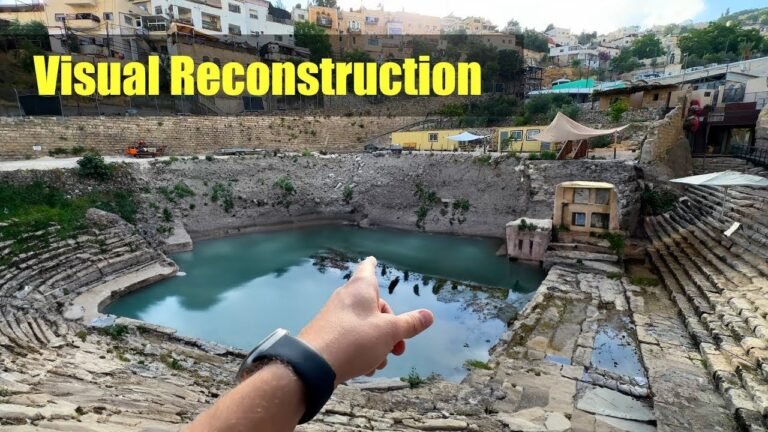Understanding the Meaning of Sinai
The term Sinai carries profound significance, resonating with historical, spiritual, and geographical dimensions. Originating from the biblical Mount Sinai, where Moses is said to have received the Ten Commandments, the name evokes images of divine revelation and moral guidance. Beyond its religious connotations, Sinai also refers to the striking peninsula in Egypt, known for its rugged mountains and vibrant cultural heritage. This rich tapestry of meaning makes Sinai a focal point of exploration for historians, theologians, and travelers alike, inviting us to delve deeper into its multifaceted legacy.
What does Sinai symbolize spiritually?
Mount Sinai embodies a profound spiritual significance, representing a heightened state of consciousness where individuals can engage in meaningful communion with the Divine. It serves as a metaphorical summit in our inner landscape, inviting us to rise above the mundane and connect with a higher spiritual reality. This ascent to the mountain symbolizes the journey towards enlightenment and divine understanding.
In contrast, the wilderness surrounding Sinai reflects the mental and emotional challenges we face on our spiritual journey. It is within this desert of the mind that we confront our limitations and distractions, ultimately seeking the exalted clarity and wisdom that Mount Sinai and its counterpart, Horeb, represent. Together, these elements form a powerful narrative of transformation, guiding us toward a deeper connection with our inner selves and the divine presence.
What is Sinai in the Bible?
Mount Sinai, located in the south-central Sinai Peninsula of Egypt, holds a pivotal place in biblical history. This granitic peak is revered as the site where God is believed to have revealed His laws to Moses, marking a monumental moment in the Jewish faith. The giving of the Ten Commandments, as described in the books of Exodus and Deuteronomy, symbolizes a covenant between the divine and the people, shaping the moral and ethical foundations of Judaism.
The significance of Mount Sinai extends beyond its geographical presence; it embodies a profound spiritual legacy. Pilgrims and scholars alike have journeyed to this sacred site, drawn by its historical and religious importance. The mountain serves as a reminder of the profound experiences that shaped a nation and its beliefs, making it a cornerstone of Jewish identity and faith that resonates through generations.
What is the origin of the name Sinai?
The name Sinai is believed to have origins linked to the ancient Mesopotamian moon-god Sin, highlighting the region’s deep historical and cultural connections. This lunar deity was not only significant in Mesopotamian mythology but also resonated within the surrounding areas, including ancient Egypt, where the moon-god Thoth held a similar prominence.
This intertwining of religious beliefs underscores the rich tapestry of influences that shaped the identity of Sinai. The reverence for these moon deities reflects the region’s significance as a crossroads of cultures and faiths, where spiritual traditions of the ancient world converged, leaving a lasting legacy that continues to captivate interest today.
Unveiling the Historical Significance
Throughout history, certain events and figures have shaped our understanding of society and culture, weaving a complex tapestry that reflects the struggles and triumphs of humanity. Each era has left its mark, offering invaluable lessons that resonate even today. By examining these pivotal moments, we gain insight into the forces that have influenced our present and continue to guide our future. The exploration of such historical significance not only enriches our knowledge but also instills a sense of connection to the past.
As we delve deeper into these historical narratives, we uncover the motivations and consequences behind key decisions that have altered the course of nations. The stories of resilience, innovation, and conflict serve as reminders of our capacity for growth and change. By embracing this rich heritage, we empower ourselves to navigate contemporary challenges with wisdom and understanding. Celebrating our shared history fosters a sense of unity, encouraging us to learn from both our achievements and failures as we look towards a brighter future.
The Spiritual Journey Through Sinai
Embarking on a spiritual journey through Sinai is like stepping into a sacred narrative where history and faith intertwine. This ancient land, steeped in biblical significance, offers a backdrop for reflection and renewal. As travelers traverse its rugged landscapes, they find themselves immersed in the echoes of past revelations, fostering a deeper connection to their spiritual heritage.
The breathtaking vistas of Sinai, from the towering peaks of Jebel Musa to the serene shores of the Red Sea, serve as a canvas for introspection. Each step along the winding trails invites pilgrims to contemplate their purpose and seek clarity in their lives. The silence of the desert, punctuated only by the rustle of the wind, creates a profound sense of peace, allowing the mind to wander and the spirit to soar.
In this transformative environment, the journey becomes more than just a physical expedition; it evolves into a personal pilgrimage of the heart. As individuals engage with the land’s spirituality, they often discover a renewed sense of hope and direction. Sinai stands not only as a historical landmark but as a beacon of inspiration, guiding seekers toward a deeper understanding of themselves and their place in the universe.
Sinai’s Impact on Culture and Faith
The Sinai Peninsula, a land steeped in history, has long served as a crossroads of culture and faith. Its rugged landscapes and ancient sites have inspired countless generations, fostering a rich tapestry of beliefs that interweave the threads of Judaism, Christianity, and Islam. The iconic Mount Sinai, believed to be the place where Moses received the Ten Commandments, stands as a powerful symbol of divine revelation, drawing pilgrims and scholars alike. This sacred geography has not only shaped religious narratives but has also influenced art, literature, and philosophy, reflecting the profound connection between place and spiritual identity.
Beyond its religious significance, Sinai’s diverse cultural heritage has played a pivotal role in shaping the region’s social fabric. The fusion of Bedouin traditions with the influences of various empires has created a unique cultural milieu that celebrates music, dance, and storytelling. Artisans craft intricate textiles and pottery, echoing the land’s historical legacy, while festivals and rituals reflect the intertwining of ancient customs and modern practices. As a result, Sinai stands as a testament to the enduring power of culture and faith, inviting all who traverse its storied landscapes to engage with the profound histories that continue to resonate today.
Lessons from the Heart of the Desert
In the vast silence of the desert, where the sun blazes and the stars shine brighter than anywhere else, profound lessons emerge from the arid landscape. Each grain of sand tells a story of resilience, reminding us that even in the harshest conditions, life finds a way to flourish. The desert teaches us the value of patience, as the slow bloom of cactus flowers reveals beauty in unexpected places. It whispers of adaptability, urging us to embrace change and persevere through adversity. As we navigate our own challenges, the wisdom of the desert beckons us to cultivate inner strength and appreciate the simple joys that arise amid life’s vast uncertainties.
The meaning of Sinai transcends its geographical boundaries, embodying a rich tapestry of history, culture, and spirituality. As a symbol of divine revelation and moral law, Sinai continues to inspire seekers of knowledge and faith alike. Its legacy challenges us to explore the depths of our own beliefs and the impact of place on our shared human experience, inviting reflection on the profound connections that shape our understanding of the world.







